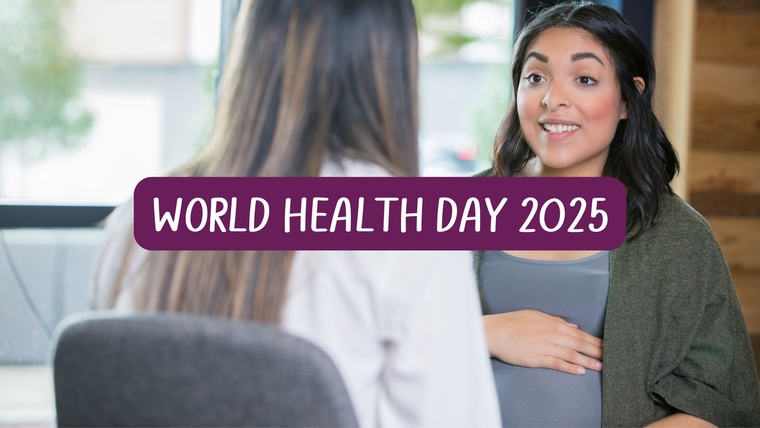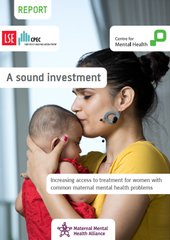Posted By: Amy Tubb
7th April 2025
1 minute read

This World Health Day, the World Health Organization (WHO) is focusing on maternal and newborn health. This is a crucial opportunity to highlight the urgent need for better perinatal mental health care.
The health of mothers and babies is the foundation of healthy families and communities, helping ensure hopeful futures for us all.
WHO
The WHO is clear: perinatal mental health care should be fully integrated into maternal and child health services. Their 2022 guide lays out how healthcare leaders and policymakers can develop and sustain high-quality, evidence-based mental health support for women during pregnancy and after birth.
The advances in perinatal mental health that have been achieved in the UK, means countries around the world look to learn from us and the improvements we’ve made in specialist care. Now there is the chance for the UK to continue that progress by becoming the first country to fully integrate mental health support into routine maternity and health visiting services.
The UK government made a commitment to improve women’s health, maternity care, and mental health support. Perinatal mental health must be central to those improvements.
The WHO says it should be happening, and the UK could be the first to do it.
Research commissioned by the MMHA shows that the economic cost to society of untreated perinatal mental health problems far outweighs the cost of providing appropriate services:

MMHA Pdf, 1.4mb
Published: February 2022
Commissioned by the MMHA, this independent report presents evidence on the costs and economic consequences of different service options, focusing on evidence-based low-intensity treatment, if unmet common mental health problems are addressed within routine health services provided to women during the perinatal period.

MMHA Pdf, 2.0mb
Published: February 2022
Commissioned by the MMHA, this policy briefing summarises the latest maternal mental health-related economic research from LSE and the case for action. It explores the current policy context for perinatal mental health care and how the case for investment can be implemented in practice.